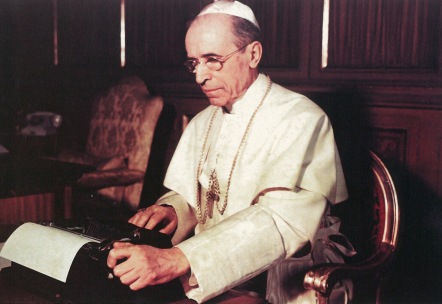
Some argue it is not possible for us to be free, it is the argument
that 1970’s Jesuits put forward to argue that mortal sin was impossible. The argument would run that an adulterer was
not entirely free because of an inner compulsion, or because “she tempted me”, when
he committed adultery.
Another example would be to say a woman was not “free” when she made a decision to
abort her baby because she couldn’t cope financially or couldn’t have time out
from her career or she simply had a dislike of baby poo or didn’t want her
figure spoilt. I am sure that most women have stronger reasons than these for
making such a terrible decision but a catholic would argue that these
reasons mitigated her culpability but could not say that she did not make a
free decision to have the child in her womb killed, even if the alternative was her own death.
The same situation would exist behind the decision of
someone whose wife and children were being tortured until he rejected Christ
and accepted some Satanic or pagan cult. The Church would still judge him to be
free. Our faith indeed sets us free, “for freedom, Christ has set us free” Gal
5:1 because for us freedom is always orientated towards God, even for unbelievers
it is orientated to God via the natural law, we know by our nature what is
right or wrong and are orientated, despite the external pressures, to act accordingly.
I am still contending with the “2+2=5” sedevacantist. He
argues as many of his kind do that: Canon 332§2: If it happens that the Roman Pontiff resigns his office, it is required for validity that the resignation is made
freely and properly manifested but not that it is accepted by anyone, would suggest that Pope Benedict's resignation was not free and therefore not valid.
He has a very modernist, uncatholic understanding of “freely”. It does
not mean there is no pressure, that rarely happens with any human decision, it
means simply that the decision is made “freely”, that is 'in Christ'.
One could argue that Pius XII’s resignation letter, that he
wrote to come into effect if he was taken prisoner by Germans, would not have
been a ‘free’ decision but this was of a very different character to Benedict
XVI’s resignation, Pius’ hand was forced by the threat of his capture, possible drugging and manipulation. Benedict’s
decision was made, as he himself has said and repeated frequently, freely, in conformity with Canon 332§2.
What is worrying here is a self appointed judge of Popes, should be so lacking in basic Catholic principles, which a few decades ago a child making his First Confession would be expected to understand.


8 comments:
It is obvious you don't understand extortion. There is no true freedom in such. I have no idea if your wild idea of Benedicts brother being a molestor of children is true, but unless you have proof you need to confess the very sinful act of slander among others.
Lynn,
Can you read?
Can you comprehend what you?
If you go back to the post you comment on you will see that is a speculation, an attempt to understand whaat might have persuaded Pope Benedict that it was better to go than stay, do you undersstand that?
ps
I do not believe Georg Ratzinger did more than he has admitted doing, whichwas widely publicised, and was certainly not sexual abuse.
I certainly did not suggest otherwise, did I?
I think the Jesuits were always great mitigaters. Their tendencies in this regard helped give rise to Jansenism by way of reaction. No decision is 100% free of either outside or internal influences, but I think that whether or when these influences will be sufficient to remove freedom entirely or suppress it to the extent that a materially grave act is only a venial sin is something that depends a lot on the individual case and in the final analysis can only be judged by God. I certainly don't agree with the position that it is next to impossible to commit a mortal sin. This is just one tiny step short of denying that human beings have any moral agency at all.
It is tantamount to saying if we have an addiction to what kind of sin whatever it is not mortal. A priest, whom I trusted in the confessional told me that the habit of sin which may be an addiction of a sorts never is grave or mortal, once it is done for the first time. This might be so probably is not quite that action in reality. I question this is it only a mortal sin when committed first. Therefore one might say after every confession absolution and penance the next temptation, occasion and sinful act is a mortal sin again. I had to stop and think on that instruction but I did remeber any mortal sin gains us hell and loses us heaven.
The Jesuits Kirt are fast mitigators they have of late become accomodators
Mike,
I would find another confessor, or at least receive absolution from him but not his advice.
Repeating a sin reduces our ability to withstand it but it does not reduce it, otherwise a mass murderer would be less culpable than a mere serial killer, and he less than one who murders just two or three, and him less than one who murders one.
I'd like to reiterate my comment of 20/7 to another subject on this blog & say that Fr Blake DID NOT suggest that Pope Benedict XVI resigned because of his brother Georg. The good Fr Blake merely SUGGESTED that his brother Georg MAY have had some influence of Benedict's decision.
Post a Comment